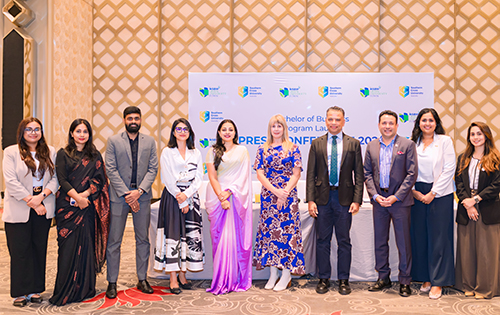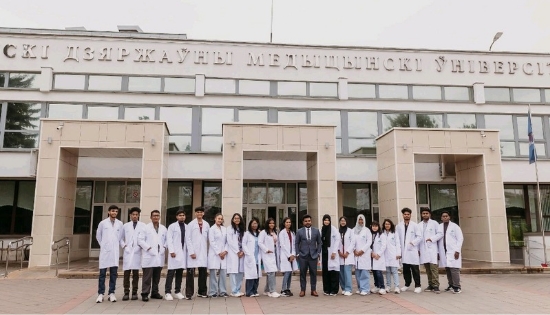MBBS vs MD: Understanding the Differences and Choosing the Right Path in Medicine
Bachelor of Medicine Bachelor of Surgery (MBBS) VS Doctor of Medicine (MD)

MBBS is an undergraduate degree and the first medical qualification awarded to students pursuing a career in medicine. The curriculum is comprehensive, covering foundational subjects like Anatomy & Physiology, Medical Biochemistry, Pathology, Pharmacology, and Microbiology, along with clinical subjects such as Paediatrics, Obstetrics and Gynaecology, Surgery, and Medicine.
Duration: Typically 5 years, divided into 2 ½ years of pre-clinical and 2 ½ years of clinical training.
Award: Upon completion, students are awarded the title of Dr./Doctor and are eligible to practice medicine after passing the country’s medical licensing exam.
Example: In India, students complete a 5.5-year MBBS program, including a one-year internship, before taking the licensing exam.
Doctor of Medicine (MD)
The Doctor of Medicine (MD) degree is perceived as a postgraduate or master’s qualification in many countries. However, in the USA, Canada, Europe, and some Eastern European countries like Belarus, Armenia, Latvia, and Georgia, the MD degree is considered a bachelor’s degree.
Duration: Typically 6 years, including 3 years of pre-clinical and 3 years of clinical study, along with a one-year internship.
Award: Graduates are awarded the title of Dr./Doctor and can practice medicine after passing the country’s medical licensing exam.
Example: In the USA, the MD is a postgraduate degree that requires a bachelor’s degree and completion of a 4-year medical program, followed by residency training in a specialized area of medicine.
Comparison
Structure: MBBS is an undergraduate degree, while MD can be either a bachelor’s or postgraduate degree, depending on the country.
Curriculum: Both degrees cover similar subjects, but the specific courses and duration may vary.
Prerequisites: MBBS typically requires strong grades in biology, physics, and chemistry at the high school level, while MD may require a bachelor’s degree for postgraduate programs.
Post-Graduation: Both degrees allow graduates to practice medicine after passing the country’s medical licensing exam.
In Sri Lanka, foreign medical students can practice after obtaining either an MD or MBBS degree from a university registered under the Sri Lanka Medical Council (SLMC). It is essential to ensure that the chosen university is listed under the SLMC when studying medicine abroad.
The general entry requirements to study MD/MBBS, according to the SLMC, include specific grades in biology, physics, and chemistry at the GCSE, Cambridge, or Edexcel Advanced level examinations.
Understanding the differences between MBBS and MD degrees can help aspiring medical students choose the right path for their career in medicine.
The general entry requirement to study MD/MBBS according to SLMC is 2C’s & 1S / 1D for GCSE, Cambridge or Edexcel Advanced level examination for biology, physics & chemistry in a single sitting.
Countries that offer MD or MBBS
Bachelor of Medicine Bachelor of Surgery (MBBS): Australia, China, Sri Lanka, Malaysia, Nepal, UK / United Kingdom, India, Bangladesh, Russia, Ukraine, Philippines, Kyrgyzstan, Kazakhstan
Countries that offer Doctor of Medicine (MD): Australia, Belarus, Canada, Georgia, Latvia, Russia, USA / United States, Armenia, United Kingdom, Germany, Ireland, New Zealand, Poland, Italy, Czech Republic.
Related News
Wuthering Heights: Book vs Movie – Which Resonates More?
Read • Watch • Learn When Emily Brontë published Wuthering Heights in 1847, few expected the novel to become one of the…
Read MoreWycherley International School Dehiwala Hosts Joyful Kiddies Fiesta 2026 Celebration
Wycherley International School Dehiwala welcomed students, parents and teachers to a spirited celebration of childhood at its Kiddies Fiesta 2026 on 11…
Read MoreBusiness, BUT NOT AS USUAL – Southern Cross University Brings Bachelor of Business to Sri Lankan Students at NSBM Green University
SCU Sri Lanka National Launch | 19–21 February 2026 | NSBM Green University, Homagama Southern Cross University (SCU), one of Australia’s leading…
Read MoreBelarusian State Medical University:A Trusted Pathway to Studying Medicine Abroad with ISC Education
For many Sri Lankan students, gaining entry to a local medical faculty remains highly competitive despite strong academic performance. As a result,…
Read MoreCourses
-

The future of higher education tech: why industry needs purpose-built solutions
For years, Institutions and education agencies have been forced to rely on a patchwork of horizontal SaaS solutions – general tools that… -

MBA in Project Management & Artificial Intelligence – Oxford College of Business
In an era defined by rapid technological change, organizations increasingly demand leaders who not only understand traditional project management, but can also… -

Scholarships for 2025 Postgraduate Diploma in Education for SLEAS and SLTES Officers
The Ministry of Education, Higher Education and Vocational Education has announced the granting of full scholarships for the one-year weekend Postgraduate Diploma… -

Shape Your Future with a BSc in Business Management (HRM) at Horizon Campus
Human Resource Management is more than a career. It’s about growing people, building organizational culture, and leading with purpose. Every impactful journey… -

ESOFT UNI Signs MoU with Box Gill Institute, Australia
ESOFt UNI recently hosted a formal Memorandum of Understanding (MoU) signing ceremony with Box Hill Institute, Australia, signaling a significant step in… -

Ace Your University Interview in Sri Lanka: A Guide with Examples
Getting into a Sri Lankan sate or non-state university is not just about the scores. For some universities' programmes, your personality, communication… -

MCW Global Young Leaders Fellowship 2026
MCW Global (Miracle Corners of the World) runs a Young Leaders Fellowship, a year-long leadership program for young people (18–26) around the… -

Enhance Your Arabic Skills with the Intermediate Language Course at BCIS
BCIS invites learners to join its Intermediate Arabic Language Course this November and further develop both linguistic skills and cultural understanding. Designed… -

Achieve Your American Dream : NCHS Spring Intake Webinar
NCHS is paving the way for Sri Lankan students to achieve their American Dream. As Sri Lanka’s leading pathway provider to the… -

National Diploma in Teaching course : Notice
A Gazette notice has been released recently, concerning the enrollment of aspiring teachers into National Colleges of Education for the three-year pre-service… -

IMC Education Features Largest Student Recruitment for QIU’s October 2025 Intake
Quest International University (QIU), Malaysia recently hosted a pre-departure briefing and high tea at the Shangri-La Hotel in Colombo for its incoming… -

Global University Employability Ranking according to Times Higher Education
Attending college or university offers more than just career preparation, though selecting the right school and program can significantly enhance your job… -

Diploma in Occupational Safety & Health (DOSH) – CIPM
The Chartered Institute of Personnel Management (CIPM) is proud to announce the launch of its Diploma in Occupational Safety & Health (DOSH),… -

Small Grant Scheme for Australia Awards Alumni Sri Lanka
Australia Awards alumni are warmly invited to apply for a grant up to AUD 5,000 to support an innovative project that aim… -

PIM Launches Special Programme for Newly Promoted SriLankan Airlines Managers
The Postgraduate Institute of Management (PIM) has launched a dedicated Newly Promoted Manager Programme designed to strengthen the leadership and management capabilities…
Newswire
-
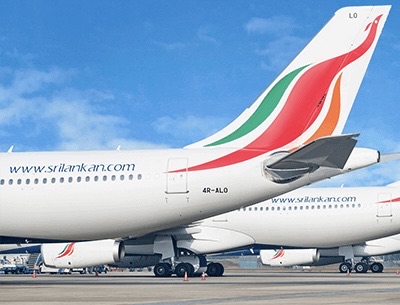
SriLankan Airlines warns of flight delays amid Middle East airspace closures
ON: February 28, 2026 -
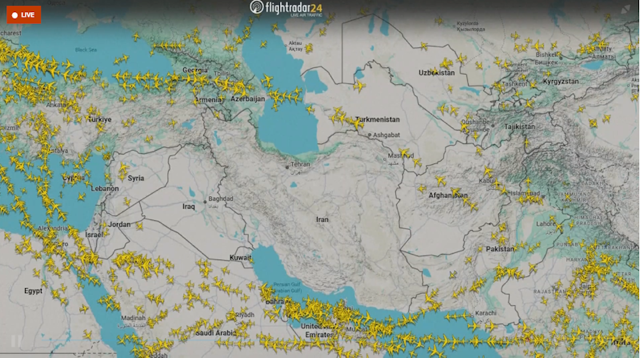
Iran launches retaliatory strikes across Israel and Gulf after US-Israeli air raids
ON: February 28, 2026 -
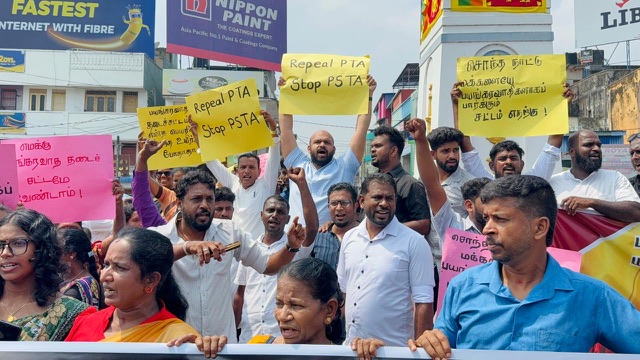
Protest held in Batticaloa calling for repeal of PTA, opposing PSTA
ON: February 28, 2026 -

Israel launches attack on Iran, explosions in downtown Tehran
ON: February 28, 2026 -

At least 15 killed after air force plane carrying banknotes crashes in Bolivia
ON: February 28, 2026








